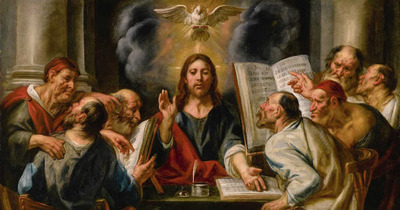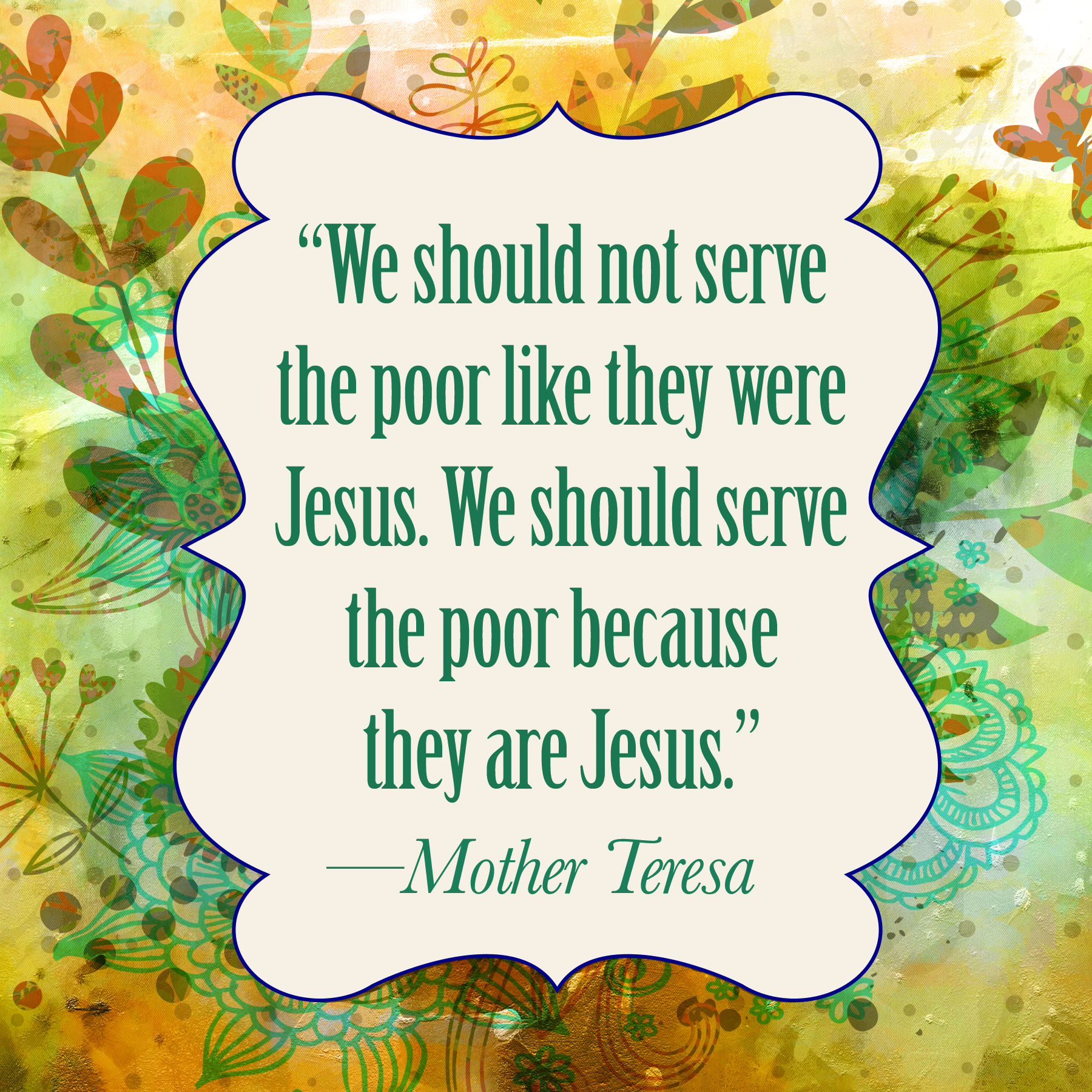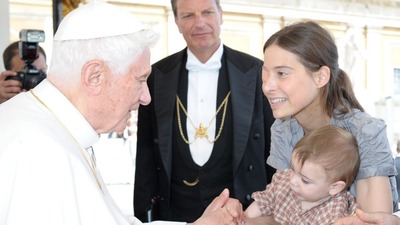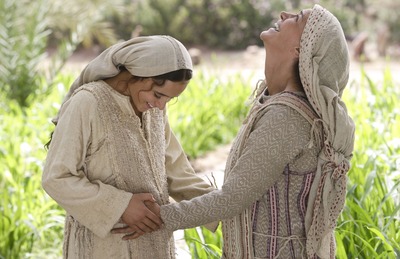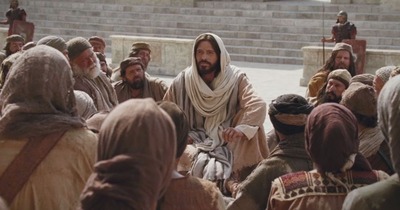August 15, 2024
|by N W
|
0 Comments
|
Blessings, Father Nixon, Grace, Humility, Mary, Service
Solemnity of the Assumption of the Blessed Virgin Mary
August 15, 2024 — Year B
Readings: Rv 11:19A; 12:1-6A, 10AB / Ps 45 / 1 Cor 15:20-27 / Lk 1:39-56
by Rev. Nixon Negparanon, Pastor
Today we celebrate the Solemnity of the Assumption of Mary into heaven. The Church teaches us that Mary is assumed into heaven, body and soul. Because of this doctrine, or dogma, many of our brothers and sisters say, “Oh, that’s just made up by the Church leaders.” But let us realize that this is a product of deep prayer and reflection.
Sometimes they will tell us, “You Catholics equate Mary to God.” “You treat her like God.” Or, “You exalt Mary too much.”
Let us not forget what St. Maximilian Kolbe advised us. He said, “Do not be afraid to love Mary too much, because you can never love her more than Jesus did.” In fact, it is not us, nor the Church leaders, who exalted Mary too much first. It is the scripture. While not in our gospel today, there is a passage in the same book and chapter: Luke 1:28. The angel Gabriel appeared to Mary and said, “Hail Mary – rejoice Mary — you are full of grace.” Mary, as the new Eve, is full of grace, not sin. That was the angel who said that, and not any Church leaders. The scripture, recorded scripture, stated that Mary, as the new Eve, is full of grace.
Because of Eve’s disobedience to God’s will, sin and death entered the world. But when Mary obeyed God’s will, heaven became wide open again. That’s the difference between the new Eve and the old Eve. When Mary came, it opened heaven again. When Mary came, it was not sin and death that entered the world, but rather salvation and eternal life that become our destination while we are here on earth.
That’s why, from the very beginning, even in our first reading for today, in the Book of Revelation, it says, “God’s temple in heaven was open and the ark of His covenant could be seen in the temple.” The ark of the covenant that was mentioned here is Mary herself. Mary is the ark, and Jesus is the new covenant. That covenant is based on that ark. God put His son, Jesus, in her womb. That’s why when we pray the litany, “the ark of the covenant” refers to Mary.
That’s why from the very beginning of the conception of Mary, the Immaculate Conception, she was already preserved from the contagion of original sin. Mary was sinless. That’s why Mary never experienced death. What is the effect of sin? Death. That’s why Mary never experienced death. And this is the feast that we celebrate today: Mary’s Assumption into heaven, body and soul.
But what can we learn from our gospel today, as we celebrate feast of the Assumption of Mary into Heaven? There were two important things of which Mary showed us great examples.
First, Mary was a person who was willing to look after the needs of others. When Mary heard that she would conceive Jesus, and she learned that Elizabeth was also pregnant, do you know what Mary did? She went in haste to Judah. That was a long and difficult journey, because she traveled almost one hundred miles. Nobody told Mary to go to Elizabeth. The angel didn’t say, “Go to visit your cousin, Elizabeth, because she needs your help.” Mary was one of those people who not only knows how to help, but is able to anticipate the needs of others. That’s the lesson that we can learn from the Blessed Virgin Mary.
I know that many of us are willing to help others. The problem is that we may wait until we are asked. The sad thing is that sometimes we wait until they beg us to help them. Sadly, sometimes we only offer our help when it is too late: when a person is dead, or their life is ruined. That’s when we finally offer help.
The lesson we can learn from our gospel today is that we need to be like Mary, who knows how to anticipate the needs of her brothers and sisters. We need to be proactive. We need to always see the needs of others. That is the essence of “our brother’s keeper.” If we are our brother’s or our sister’s keeper, then we don’t wait until they ask us to help them. Go ahead, if you see there is a need; just help others.
That’s the lesson we can learn from Mary. She doesn’t wait for her cousin to ask her, “Mary, please come and help me.” She just sees the need and goes in haste to help Elizabeth.
The second thing we can learn from our gospel today is, as Mary showed us, in everything that we receive or achieve in this life, we give praise, glory, and honor to God. In our gospel, Mary was being praised, and not only in our gospel, but also in the first chapter of St. Luke. Mary was praised by the angel and by Elizabeth. The angel praised Mary saying, “Mary, rejoice, for you are full of grace.”
Elizabeth continues, saying, “Blessed are you among women. Among all the women, you are the most blessed, and blessed is the fruit of thy womb. How does this happen that the mother of my Lord should come to me? For at the moment the sound of your greeting reached my ears, the fruit in my womb leaped for joy. Blessed are you who believed what was spoken to you by the Lord would be fulfilled.”
What was Mary’s response when she heard those words?
Did she say, “I told you that you would praise me”? I told you that you would treat me as the greatest among all women”? Is that what Mary said? No. Mary remained very humble in her response. Mary knew from the very beginning that everything that happened in her life was due to the actions of God. That’s why Mary responded by saying, “My soul proclaims the greatness of the Lord. Not because I am great, but because the Lord has done great things for me.” That is the Blessed Virgin Mary. She never exalted herself. For all the successes that she had, she always gave praise and honor to the Lord.
Many of you may have watched the Olympics. I don’t watch TV that much, but I did see some clips on social media. There were ceremonies for those who received gold. You may admire or idolize many of those contestants. But sometimes, if you look at them, it’s a sad reality in life. I don’t admire many of those who seek gold. Why? Because during those times in the ceremonies when they are given the chance to speak, yes, they thank those people who have helped them. They thank their coaches, their trainers, and all the people who supported them. But very few of them thank God. Very few of them realize that they didn’t receive those medals without God’s grace and help. They forget the One who gave them their strength, their skills, their abilities, their intelligence. It’s all coming from God. The source of all that is God alone.
It’s sad, because they are given the opportunity; they’re given the platform to speak and to spread the love that the Lord has given them, their faith in God. That’s their opportunity to spread the Word. But they don’t do it.
Again, in our gospel today, Mary knew very well that all that she had came from God. All the glory, all the praises that the angel, and her cousin, and other people gave her, she directed all of them to the Lord. She knew very well that everything she received in this life was due to God’s actions. Mary never took any of the blessings she received to herself. She never accepted anything for her own. She always gave praise to the Father.
So again, today, we thank the Blessed Virgin Mary, who set us a Christian example. We ask for her intercession to accompany us on our journey to heaven. Yes, we have some difficulties and struggles in life. Let us imitate Mary who always saw and anticipated the needs of others. Whenever we receive blessings, like Mary, we need to give all the praise and glory to the Father. In fact, many of the popes have said that the fastest and the easiest, and the surest way to get close to Jesus is through Mary.
KEEP READING
 540-586-8988
540-586-8988 


